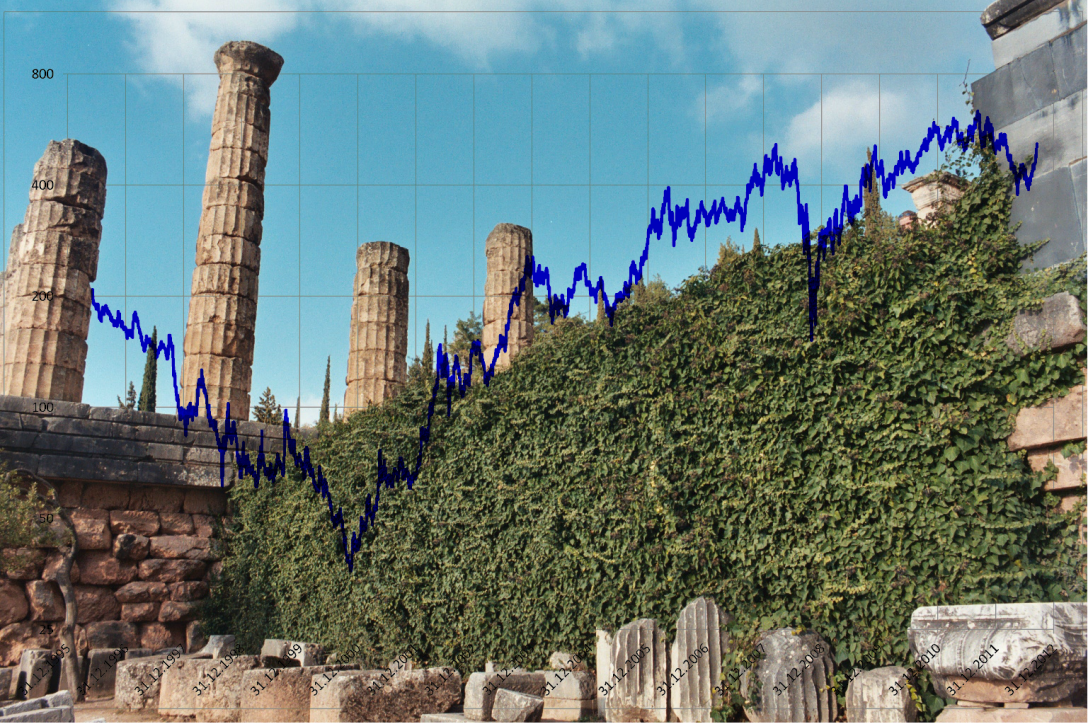Can understanding the psychology of investment behaviour help you outperform the market? Probably not, but it can certainly help reduce the probability that you will under-perform the market. This matters, because the majority of private investors under-perform.
One compelling piece of research evidence comes from a careful analysis, carried out by Dalbar research, of the performance of investors in the USA. During the 20 year period from 1992 to 2012 the S&P index had an average annual return of 8.21%. The average investor earned 4.25%. Investors not only under-performed the market, typically they systematically under-performed the specific assets they were invested in.
How did this happen? It turns out that on average investors mistimed the market, buying high and selling low; undermining their own investment performance.

They also spent too little time invested in assets, churning their portfolios and incurring significant transactions costs in the process. Private investors are often overconfident in their ability to time the market but react to news that the market has already incorporated into prices.
This behaviour has its roots in the strong emotional reactions we have to our financial affairs. Our emotions are particularly sensitive to loss. All too often our strong reactions to loss or the possibility of loss provokes us to make dysfunctional decisions. This is not only a problem for private investors. In research with professional traders, I and colleagues found strong relationships between ability to manage emotions effectively and traders’ expertise and performance.
Investors, like all human beings, are good at fooling themselves. As any con man knows, properly motivated by strong emotions such as fear or greed, people are endlessly creative in their capacity for self-deception. Intelligence is no defence; since it simply implies greater cognitive resources to be marshalled in the cause of self-deception.
For example, we hate feeling that we have no control of the world around us. Faced with a lack of control we often maintain emotional comfort by succumbing to illusions of control. Illusions of control are the tendency to believe we have greater control over a situation than is reasonably possible. Again this is not just a problem for private investors. In a study of traders in investment banks, we used a computer based task to measure propensity to illusions of control. The findings were striking. Traders with high illusions of control earned much less, contributed less on average to desk profits and were rated by managers as poorer at analysis and risk management.
For private investors overconfidence and illusions of control often manifest as a belief in their ability to time the market and judge just the right point to buy or sell. The result is often the exact pattern of buying high and selling low that the Dalbar research found.
So what can investors do to avoid these traps? There are several useful principles to follow.
- Follow the dictum inscribed on the ancient Greek temple of Apollo at Delphi; Know Thyself. Notice your own emotions. Learn to recognise the ways in which they sway your decisions. Often those who are least aware of their emotions and their effects are most swayed by them.
- Recognize that you can’t eliminate your emotions, but you can understand and manage them.
- A common practice followed by professional traders is to write things down.
Writing (Photo credit: Wikipedia) They write down their strategies and more importantly they write down their reasons for any change of strategy. In consequence, they often realize that a desire to change strategy may be driven less by any real change in the market situation than the unpleasant emotions provoked by a setback. Similarly write down your investment strategy and planned time horizon of investment. If you decide to change strategy (such as by exiting early after a market downturn) write yourself a letter explaining your reasons for doing so and why the original strategy is no longer valid. Then take time to read your letter critically and check your motives.
- Just like dieter or a recovering alcoholic it pays to avoid temptation. We live in a world in which it is possible to monitor the performance of your investments on your phone and trade your assets at the push of a web page button. If you have a long-term investment strategy, such close monitoring is likely to engage you emotionally in a way which can quickly derail your best intentions.
- Take your emotional resilience into account in planning investments. It may be true that investing in more volatile assets can provide a better return, especially if you have a long term investment horizon and don’t need quick access to your capital. However, you also need to sleep at night. If weathering periods of high market volatility creates too much anxiety you are likely to exit your investment too early and at an unfavourable point.
* A version of this article previously appeared as “Emotional Investment” in the Autumn 2013 issue of Private Investor, the London Stock Exchange Quarterly Magazine
Dalbar , Quantitative analysis of financial behaviour 2013. www.dalbar.com: Boston,MA
Fenton-O’Creevy, M., Soane, E., Nicholson, N., & Willman, P. (2011). Thinking, feeling and deciding: The influence of emotions on the decision making and performance of traders. Journal of Organizational Behavior, 32(8), 1044-1061.
Fenton-O’Creevy, M., Nicholson, N., Soane, E., & Willman, P. (2003). Trading on illusions: Unrealistic perceptions of control and trading performance. Journal of Occupational and Organizational Psychology, 76, 53-68.
Fenton-O’Creevy, M., Lins, J., Vohra, S., Richards, D., Davies, G., & Schaaff, K. (2012). Emotion regulation and trader expertise: heart rate variability on the trading floor. Journal of Neuroscience, Psychology and Economics, 5(4), 227-237.




Reblogged this on Edgar's Real Edge.
LikeLike